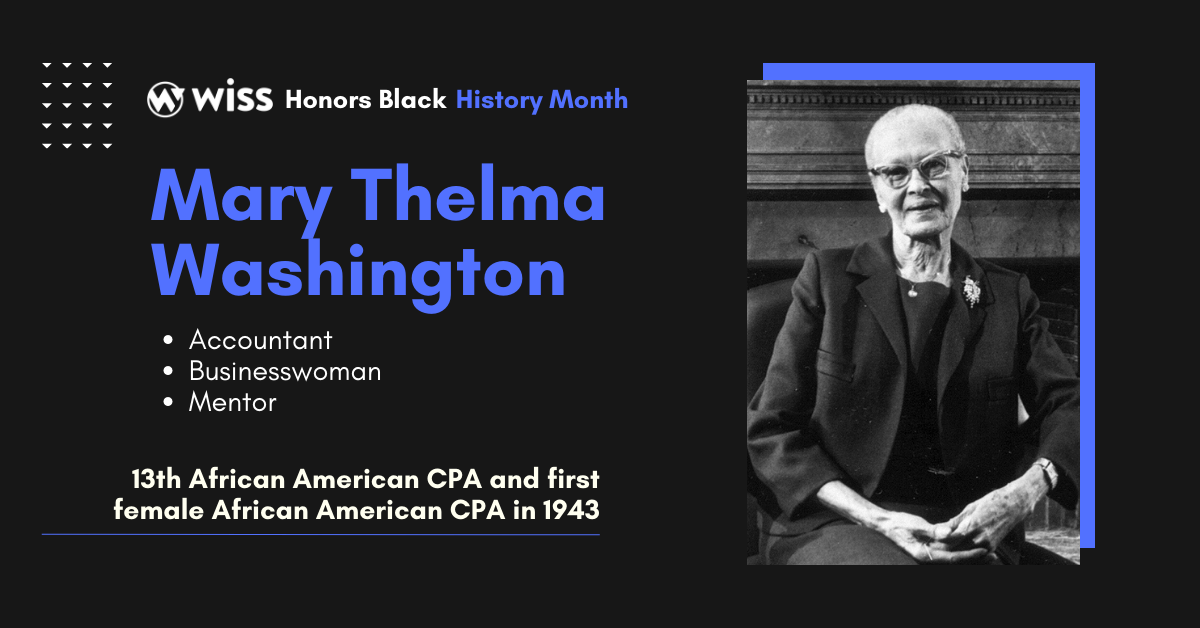By Michelle Antico, Marketing Coordinator
To kick off our Black History Month blog series, we recognized the first African American CPA, John Wesley Cromwell, Jr. Next, we highlight the first female African American CPA, Mary Thelma Washington. As a young girl, Mary’s father, a carpenter, would often brag that his daughter could read the entire newspaper. At six years old, Washington moved to Chicago to live with her maternal grandparents because her mother had passed away and was left an orphan. Despite the unforeseeable challenges she faced as a child, Washington excelled throughout her school years, specifically in math. After graduating high school, she began her first job at Binga State Bank, one of only a few black-owned banks. The bank’s vice president and Washington’s supervisor recognized her remarkable skill set and encouraged her to pursue her business degree. So, she did just that.
In the late 1930s, Mary Thelma Washington attended Northwestern University’s School of Chicago Business, where she was the only woman and Black female in her program. After earning her degree in 1941, she completed the CPA licensing exam, and again, she was the only Black woman in the room. Nonetheless, Washington began building her tax-season clientele and focused on serving the community of small Black-owned businesses in her area. Soon after, in 1943, Washington became the 13th African American CPA and the first African American woman CPA.
In 1939, Washington started a firm in her basement on the South Side. Today the firm is known as Washington, Pittman & McKeever and remains one of the largest black-owned firms in the nation. Becoming the first Black woman CPA in the country inspired others, signifying that dedication and leadership are possible for anyone, regardless of race and gender. Beyond her established accounting firm, Washington fostered the development of young African American CPAs who needed to serve apprenticeships to earn their CPA licenses. Although she may not be with us anymore, the impact Washington has left on the accounting field will never go unnoticed and will tremendously influence African American women interested in becoming CPAs.

 Previous
Previous






